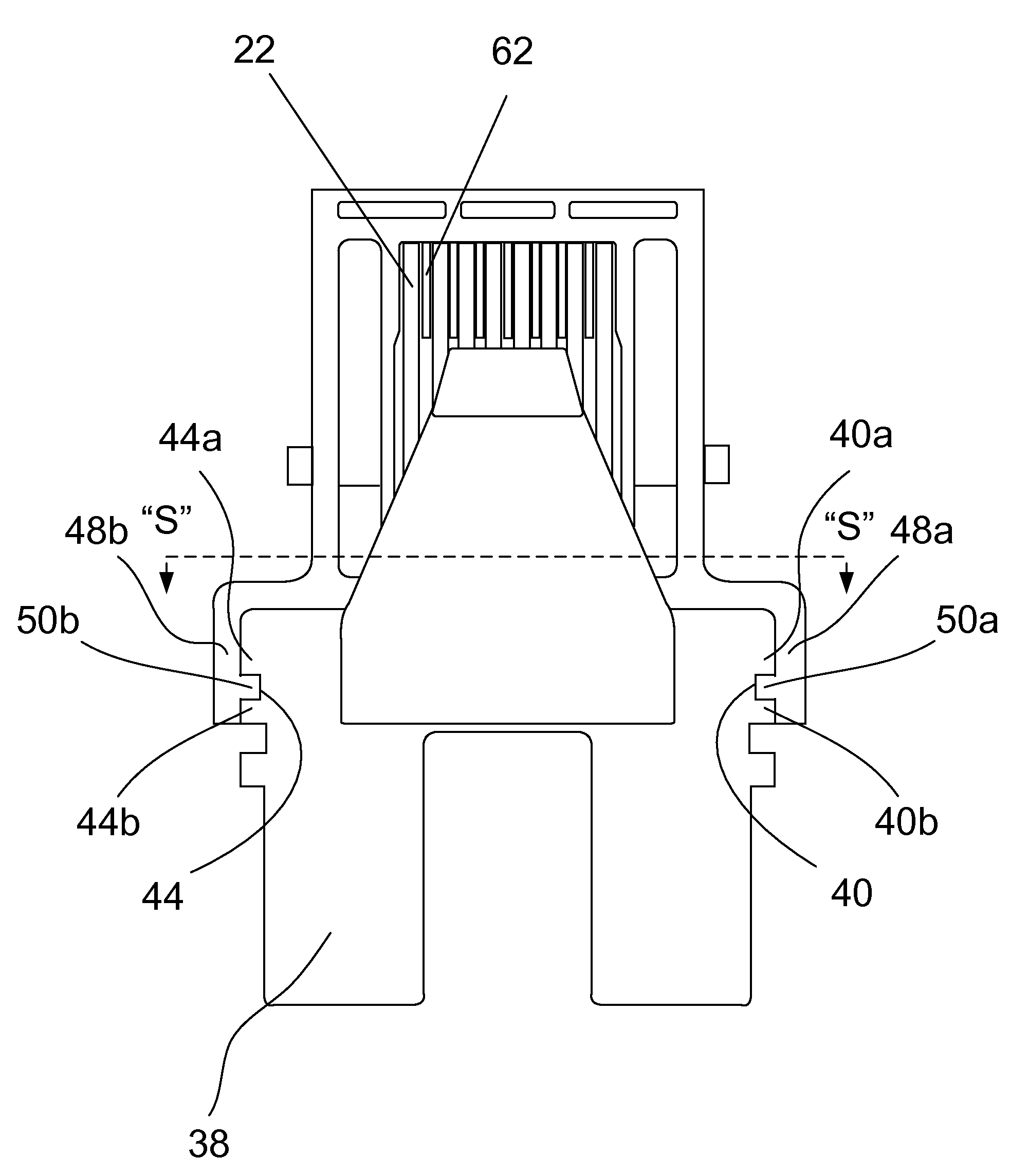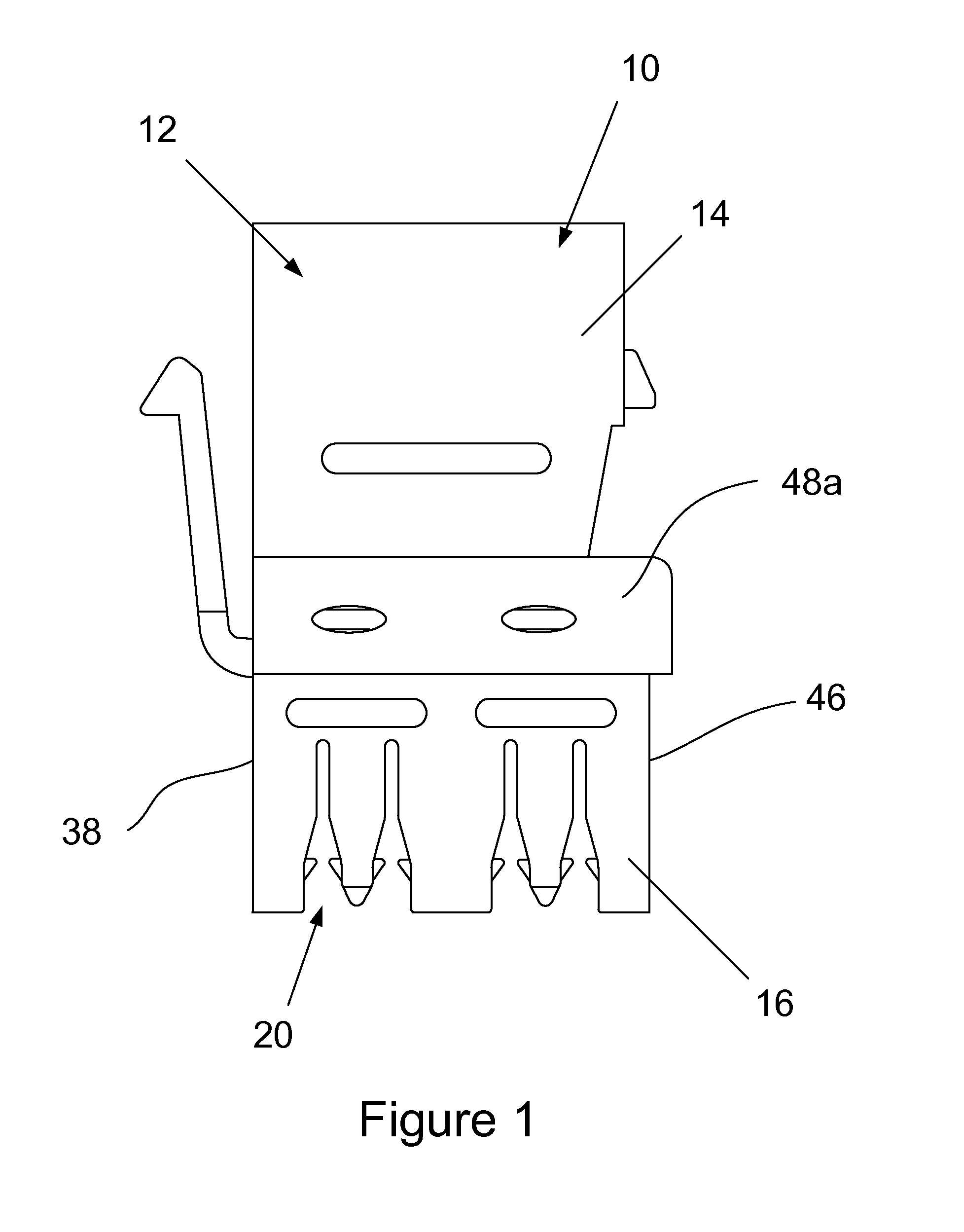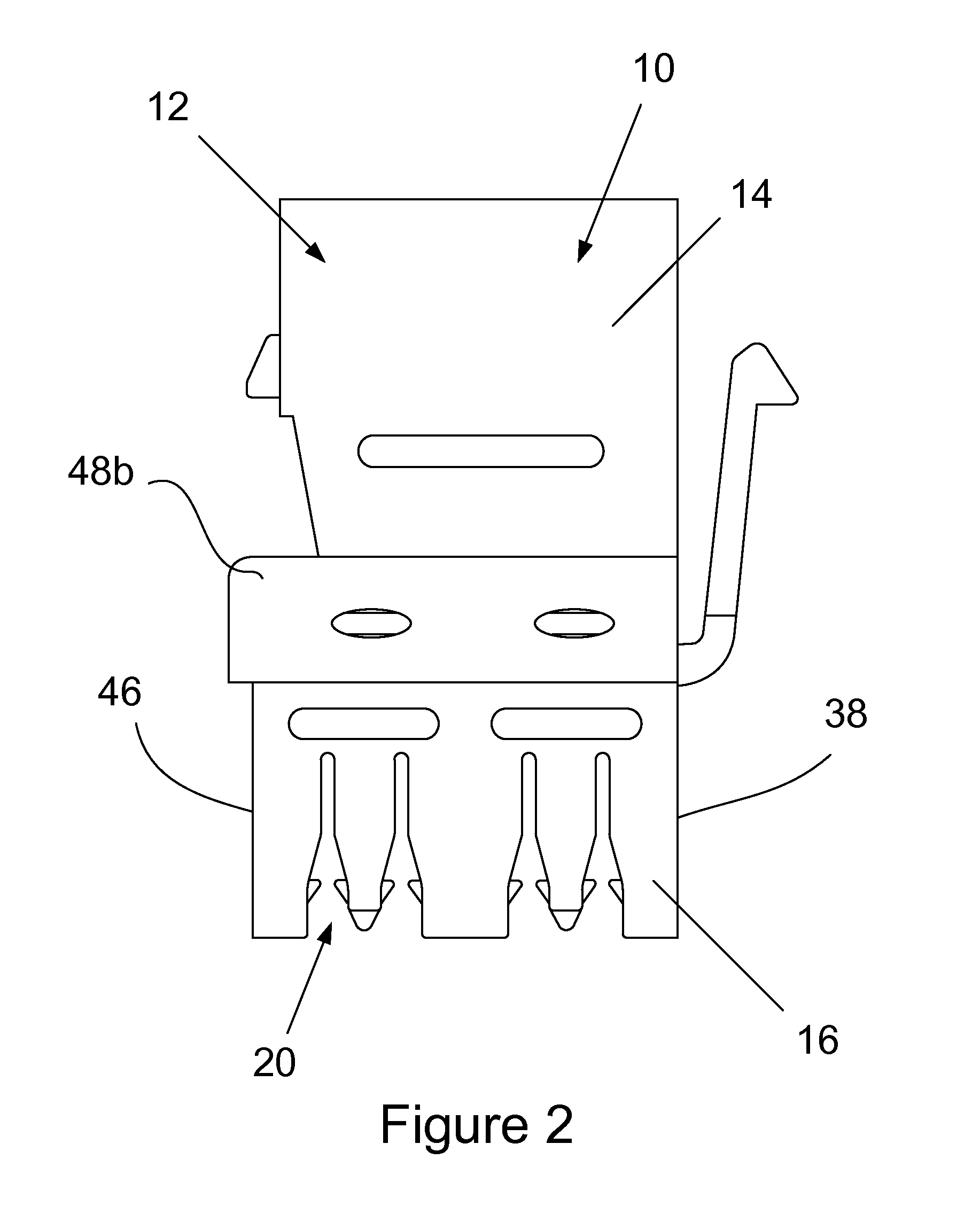Electrical connector
a technology of electrical connectors and connectors, applied in the direction of coupling device connections, electrical discharge lamps, coupling device details, etc., can solve the problems of increasing the difficulty of problems, reducing the processing ability of incoming signals, and compounding problems
- Summary
- Abstract
- Description
- Claims
- Application Information
AI Technical Summary
Benefits of technology
Problems solved by technology
Method used
Image
Examples
Embodiment Construction
[0063]The electrical connector 10, also referred to as the Jack 10, shown in FIGS. 1 to 6 includes a housing 12 formed in front 14 and back 16 interlocking parts. The front part 14 of the housing 12 includes a socket 18 that is shaped to at least partially receive a male section of a modular plug (not shown) that terminates the insulated conductors of an electric data cable. The back part 16 of the housing 12 includes insulation displacement contact slots 20 that are each shaped to receive an end section of an insulated conductor of an electronic data cable (not shown).
[0064]The electrical connector 10 also includes eight electrically conductive contact elements 22, as shown in FIGS. 7 to 11, that each extend between the socket 18 and corresponding insulation displacement contact slots 20. The contact elements 22 electrically connect conductors of a first electronic data cable connected to the socket 18 to corresponding conductors of another electronic data cable coupled to respecti...
PUM
 Login to View More
Login to View More Abstract
Description
Claims
Application Information
 Login to View More
Login to View More - R&D
- Intellectual Property
- Life Sciences
- Materials
- Tech Scout
- Unparalleled Data Quality
- Higher Quality Content
- 60% Fewer Hallucinations
Browse by: Latest US Patents, China's latest patents, Technical Efficacy Thesaurus, Application Domain, Technology Topic, Popular Technical Reports.
© 2025 PatSnap. All rights reserved.Legal|Privacy policy|Modern Slavery Act Transparency Statement|Sitemap|About US| Contact US: help@patsnap.com



